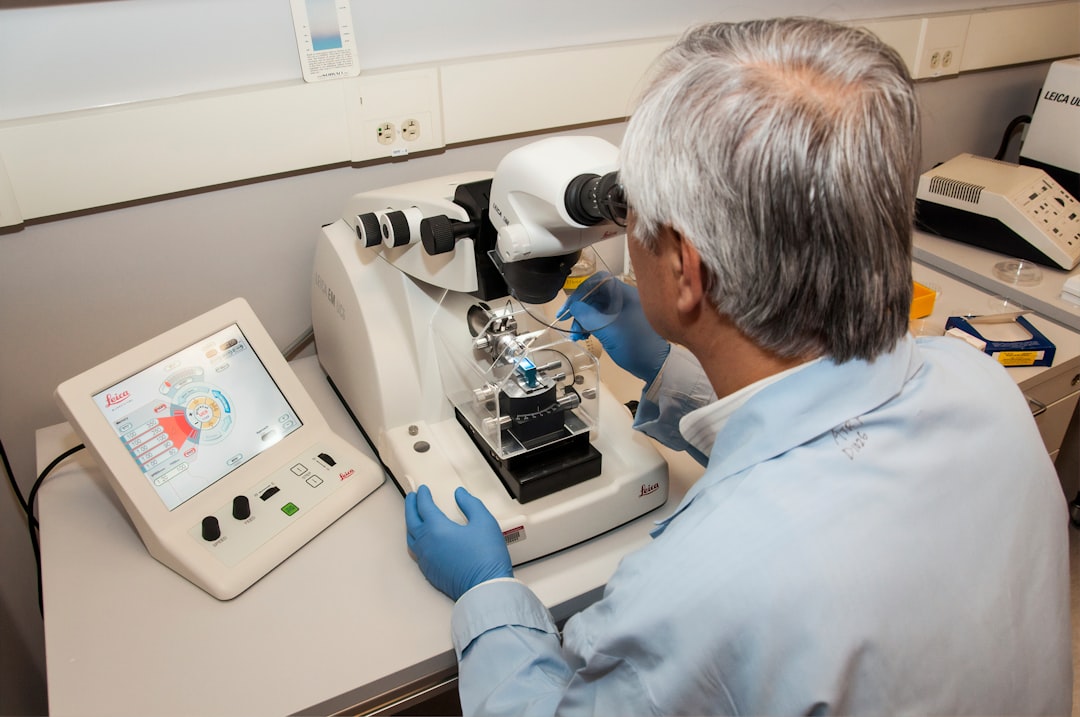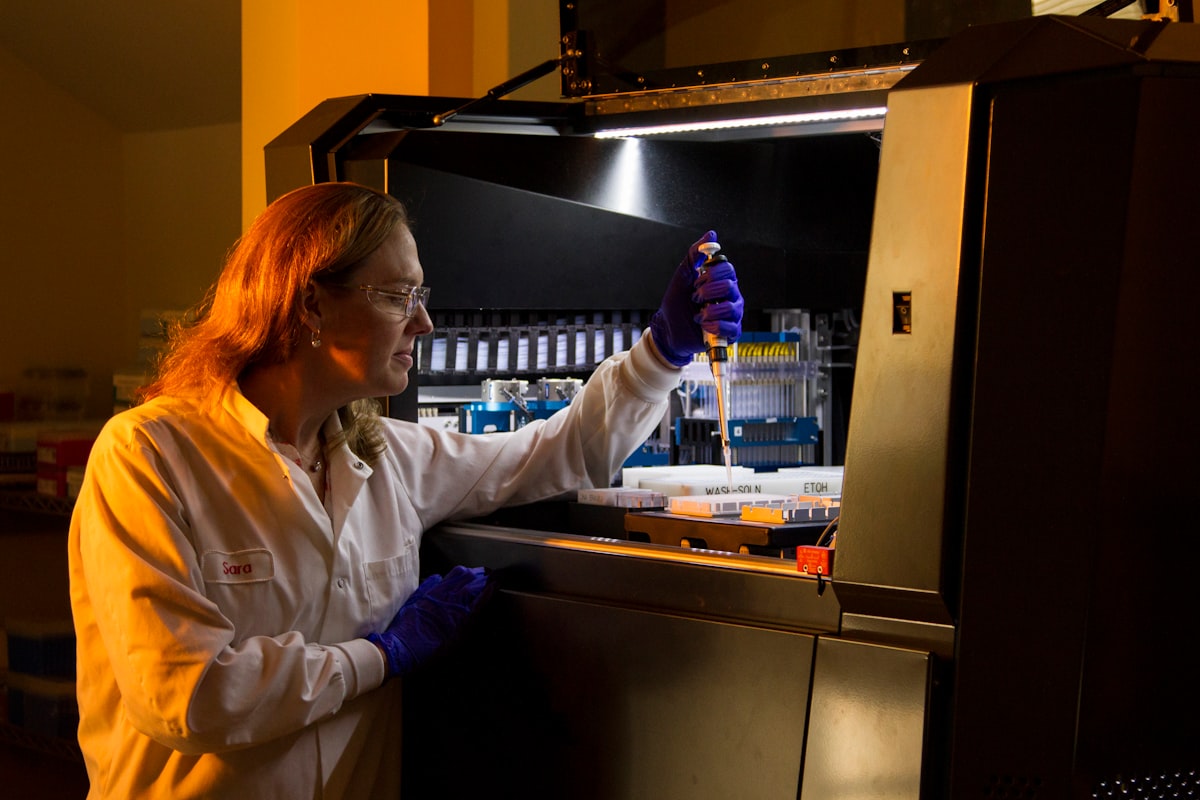Introduction:
In today’s rapidly evolving world, biotechnology plays a pivotal role in driving advancements across various industries. From healthcare to agriculture, it has transformed the way we approach scientific research and development. This article delves into the four main types of biotechnology, providing insights into their applications, benefits, and real-world impact.
What are the 4 Types of Biotechnology?
Biotechnology encompasses a diverse range of applications that harness biological systems and organisms to create innovative solutions. The four main types of biotechnology are:
Medical biotechnology focuses on developing new treatments, diagnostics, and therapies to improve human health. This field utilizes genetic engineering, molecular biology, and cell cultures to create advanced pharmaceuticals, vaccines, and regenerative therapies. Medical biotechnology has revolutionized the treatment of diseases like cancer, diabetes, and genetic disorders, offering hope for better quality of life for patients.

Agricultural biotechnology aims to enhance crop yields, improve plant resistance to pests and diseases, and develop crops with better nutritional profiles. Through genetic modification and breeding techniques, scientists create crops that can thrive in challenging conditions, contributing to global food security. Genetic engineering has led to the development of pest-resistant plants, reducing the need for chemical pesticides and minimizing environmental impact.

Industrial biotechnology involves using biological processes to manufacture products on an industrial scale. It’s responsible for producing biofuels, bioplastics, enzymes, and other sustainable materials. By leveraging microorganisms and enzymes, industrial biotechnology offers a greener alternative to traditional manufacturing processes, reducing carbon emissions and promoting eco-friendly production.

Environmental biotechnology addresses ecological challenges by using biological systems to treat pollution, manage waste, and restore ecosystems. It includes techniques such as bioremediation, which employs microorganisms to break down pollutants, and biomimicry, where natural processes inspire sustainable designs. Environmental biotechnology is crucial for preserving our planet’s natural resources and mitigating the impact of human activities on the environment.
Exploring the Applications of Biotechnology
Medical Breakthroughs:
Medical biotechnology has led to groundbreaking discoveries, such as personalized medicine tailored to an individual’s genetic makeup. With the advent of gene editing technologies like CRISPR-Cas9, researchers can modify genetic material with unprecedented precision, offering potential cures for previously untreatable genetic disorders.
Sustainable Agriculture:
Agricultural biotechnology has paved the way for drought-resistant crops, genetically modified organisms (GMOs) with extended shelf lives, and nutrient-rich biofortified crops. These innovations help address global food shortages, reduce post-harvest losses, and improve overall crop yields.
Eco-Friendly Manufacturing:
Industrial biotechnology is driving the transition to a more sustainable future by producing bio-based materials that reduce reliance on fossil fuels. From biodegradable plastics to biofuels that emit fewer greenhouse gases, this field contributes to lowering the carbon footprint of various industries.
Waste Management and Conservation:
Environmental biotechnology is instrumental in tackling pollution and waste management. Microorganisms are employed to clean up oil spills, treat contaminated water, and break down organic waste. Additionally, biomimetic designs inspired by nature are used to create sustainable solutions for architecture, transportation, and energy production.
Frequently Asked Questions (FAQs)
Can you provide examples of medical biotechnology breakthroughs?
Absolutely! Medical biotechnology has led to the development of insulin for diabetes treatment, growth hormone therapies for children with growth deficiencies, and even advanced gene therapies for inherited disorders.
Are GMOs safe for consumption?
Yes, extensive research and regulatory evaluations have shown that GMOs approved for consumption are safe. They undergo rigorous testing to ensure they don’t pose health risks to humans or animals.
How does industrial biotechnology contribute to environmental conservation?
Industrial biotechnology promotes the use of renewable resources, reduces greenhouse gas emissions, and minimizes the use of harmful chemicals. This approach aligns with sustainable practices, supporting a cleaner environment.
What role does biotechnology play in addressing climate change?
Biotechnology offers solutions such as carbon capture using algae, development of biofuels from plant matter, and enhancing the carbon sequestration potential of forests, all of which contribute to mitigating climate change.
How can individuals support environmental biotechnology efforts?
Individuals can adopt eco-friendly practices, support sustainable products, and advocate for policies that prioritize environmental protection and the adoption of biotechnology-based solutions.
What is the future of biotechnology?
The future holds exciting possibilities for biotechnology, including advanced gene editing techniques, synthetic biology, and personalized medicine. As technology evolves, biotech will continue to reshape industries and improve lives.
Conclusion:
In the realm of science and innovation, the four types of biotechnology have paved the way for transformative changes across various sectors. From saving lives through medical breakthroughs to protecting our planet through eco-friendly solutions, biotechnology demonstrates its potential to address complex challenges and shape a more promising future. As we embrace these advancements, we must also responsibly navigate the ethical considerations and potential implications of our biotech endeavors.






